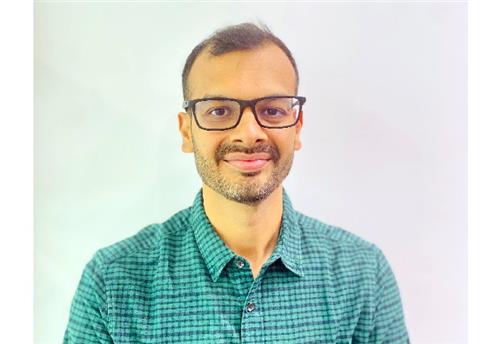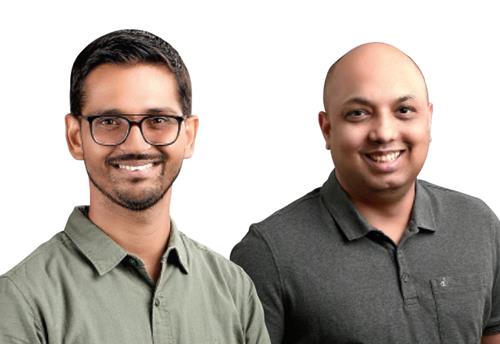'India could be the first market where Adient might pursue aftermarket opportunities.'
Adient, the global leader in automotive seating, is bullish on India. Murali Rajagopalan, Director & Country Manager, Adient India, tells Amit Panday it is exploring entering the aftermarket in India.
Adient, the global leader in automotive seating, recently announced plans to set up a state-of-the-art R&D seat testing facility in Pune, where it will be able to fully execute new product development including design and product validation for global and local launch programmes, all backed by its cutting-edge infrastructure. Murali Rajagopalan, Director & Country Manager, Adient India, speaks to Autocar Professional's Amit Panday on the company's growth strategy, and why India's could the first country where Adient forays into the aftermarket.
How was 2016, which was also the first solo year for Adient in India?
Adient was the automotive seating division of Johnson Controls, which has diversified interests in other industries too. In order to have a focused approach to tap the new opportunities in the automotive domain, the company decided to split into two independent publicly held units, one focusing only on the automotive seating systems — Adient. The other unit focuses on non-automotive domains such as energy efficient buildings and power solutions.
Globally last year, we have made very good progress. First of all, we had to establish the brand as nobody knows about Adient; instead everybody knew Johnson Controls. Then we had to get our strategies in place, set up our processes to be an independent company. I think we have set up very good foundation for ourselves, and clarity among our customers about our focus areas (including in India).
We are able to invest in new technologies. We recently (August 2017) acquired a company called Futuris Group (Michigan-headquartered privately held company engaged in designing and manufacturing fully integrated automotive seating and interior systems). When we started our company a year ago, our share price was in the range of US$ 40-45, currently it is around US$ 85. (Adient PLC is a listed company on New York Stock Exchange). Overall, 2017 has been a very positive year for us.
What is Adient’s current footprint in India. How has the company grown in India in terms of its footprints and business?
Seating systems are a voluminous commodity. So we have to be located close to our customers. We have nine assembly plants where we assemble the seating systems and supply them to our respective customers.
Seating systems have more than 300 parts, out of which major parts include the structure, mechanisms, foam and others. We make all of them in select facilities such as the one in Pune. In the Bangalore and Chennai facilities too, we make some critical parts for the seating systems. All the other plants are assembly facilities.
There are three phases of our existence in India. In the first phase, we were a joint venture company (with Tata AutoComp Systems), then we became Johnson Controls, followed by Adient. I have been with this company for the three phases and I believe that in this phase, where we are a pure automotive seating company, we will record maximum growth.
After one year as Adient India, we estimate that we will easily double our turnover in next five years from now. This will include revenues from only the manufacturing business in India.
How much has the company invested in India until now?
Our investments have been incremental as we have made investments to improve the facilities, we have invested in adding new plant(s), we have invested in JV companies and on many other heads.
On our manufacturing set up in India, I estimate that we must have invested of more than US$ 30-40 million (excluding the US$ 30 million investment in the Pune-based technical centre).
End consumers customise their seating systems a lot. Do you see a market opportunity in the aftermarket?
You will hear very soon from us that we are entering into the aftermarket business, specially targeting the consumers’ needs for customisation. We see that customisation is picking up rapidly as buyers look to customise their car interiors and seating systems with the kind of designs and fabrics they want.
How and when do you plan to do venture into the aftermarket? Does Adient cater to the aftermarket demand in any other country as well?
Adient currently does not cater to the aftermarket in any country. India could be the first market where the company might pursue aftermarket opportunities (in the automotive seating business). India’s aftermarket is a huge opportunity, the way business is done is different and the product designs are different. We need to learn as we estimate that it will demand different manufacturing plan, material planning is also estimated to change, and so will the commercial model of this business.
We are looking into the different (distribution) models. How we perceive this (aftermarket) opportunity is that we would like to be the in-charge of market research, design, styling, manufacturing. The other party, who we partner for this, can look after pricing, distribution, aftermarket sales, customer service and other areas. There are some very successful companies in India’s aftermarket.
What, in your opinion, is the opportunity size in the aftermarket for Adient India?
Let’s just consider the potential demand for seat covers in the aftermarket. We are manufacturing more than three million cars per year. If we consider an average cost of seat cover(s) to be US$ 100, we are talking about a potential business of up to US$ 300 million per annum. I would imagine that at least 70 percent of the car owners would buy new seat covers.
Secondly, we are talking about only the seat covers here. Then, there is the second-hand car market where almost every car will demand a new seat cover.
This interview is part of Autocar Professional's December 1, 2017 issue cover story.
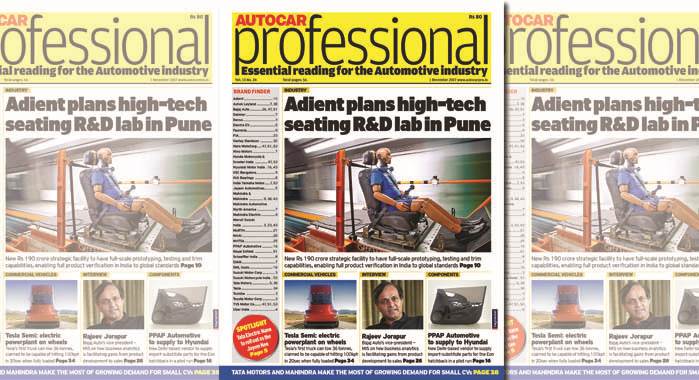
RELATED ARTICLES
Setrans Mobility Booster Charging top-up 25% EV range in 15 minutes
Two enterprising tech-savvy entrepreneurs Rana Roshan Singh and Vivek Ummat of Noida, Uttar Pradesh-based start-up Setra...
'Our products are proudly 100% designed and made in India'
Creatara Mobility, a New Delhi based electric two-wheeler startup, claims to have tackled various challenges in making i...
'EVs have been around for a much smaller time than ICE, so best practices are still evolving'
EV OEMs and start-ups are under pressure to reduce production costs and bring them close to ICE counterparts. Vaibhav Ku...





 09 Dec 2017
09 Dec 2017
 10500 Views
10500 Views



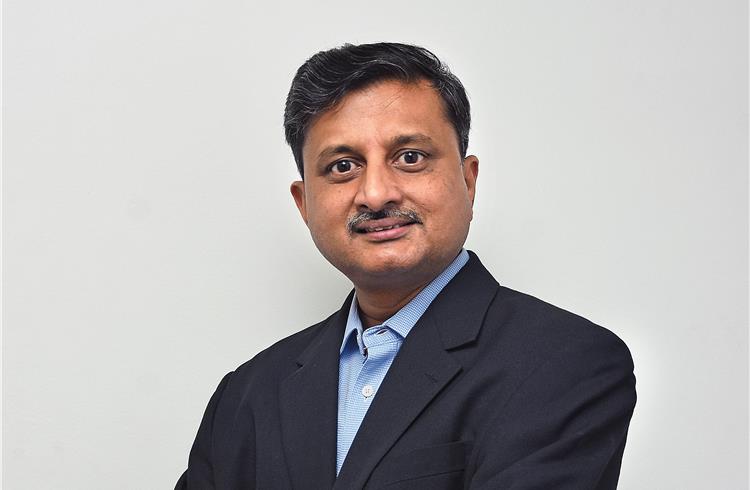
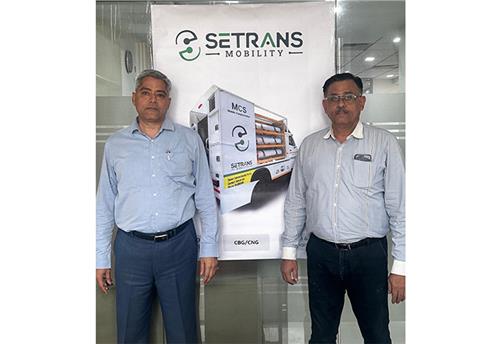
 Autocar Pro News Desk
Autocar Pro News Desk

